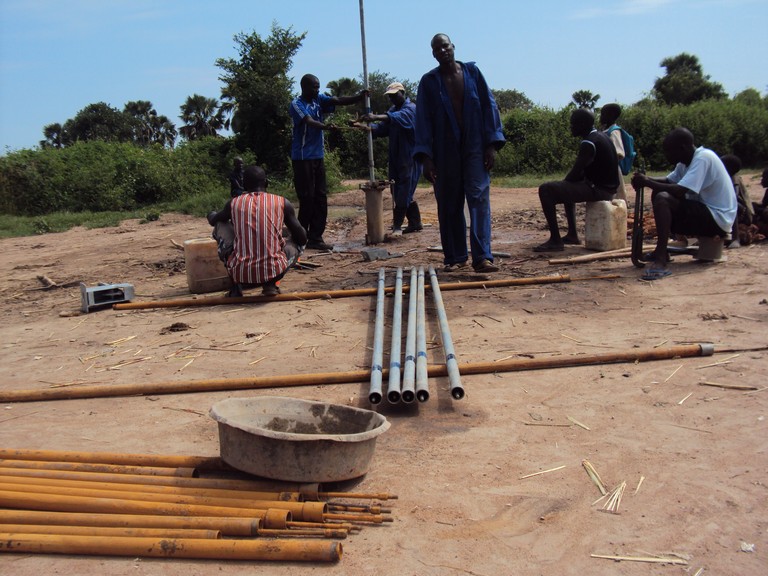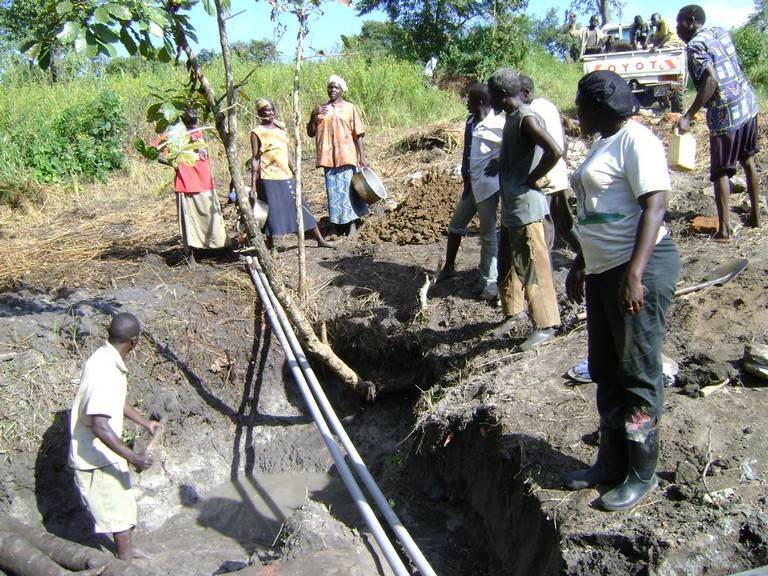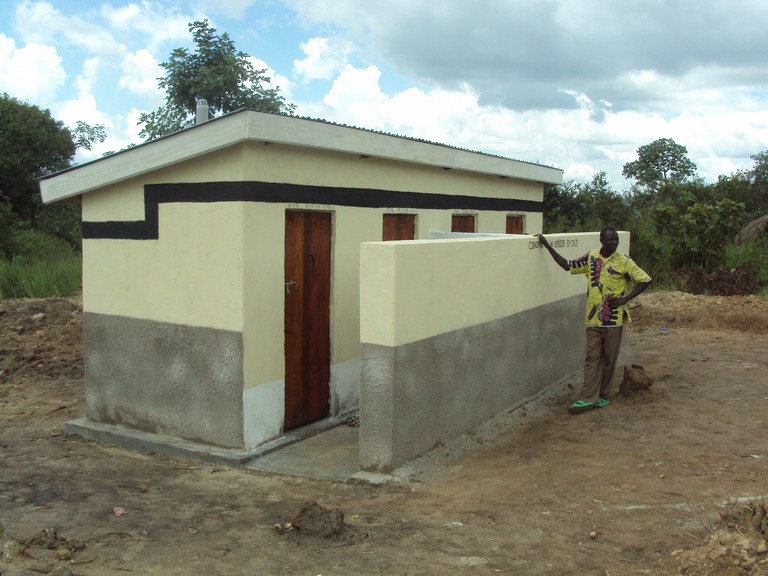40,000hhs have access to safe drinking water
The self-directed Southern Sudan is characterized by a flimsy peace agreement, poor infrastructures and basic services and a deformed economy that has kept millions of the citizens floating in dreadful poverty and hunger. Many humanitarian organizations are involved in provision of relief and development services to the different communities in Southern Sudan. However, most of these services provided are confined along the linear settlements leaving the deep rural poor communities to continue shouldering their burden of suffering and, missing the awesome opportunities of service deliveries
 One of the most needed ordinary but expensive and scarce resources; is the availability of safe drinking water in the rural communities. The rural population in Morobo and Yei Counties in Central Equatoria State and in Aweil South and Centre Counties in Northern Bahr el Ghazal State are among the very fewer underserved communities in Southern Sudan One of the most needed ordinary but expensive and scarce resources; is the availability of safe drinking water in the rural communities. The rural population in Morobo and Yei Counties in Central Equatoria State and in Aweil South and Centre Counties in Northern Bahr el Ghazal State are among the very fewer underserved communities in Southern Sudan
The prevalence of the comprehensive peace which should have accelerated sustainable post-conflict recovery in the rural communities has had no positive change in relation to water borne and water related diseases in the lives of the rural population who entirely drink from unprotected water sources. The water crises in the villages have also crippled the enrolment of the girl-child in schools. The girl-child is being used in searching for and fetching water right from early hours of the dawn and returns home in the late hours of the morning
 This year 2010, CAD was blessed to rehabilitate 95 boreholes and construct 06 ventilated improved pit latrines in Northern Bahr el Ghazal covering all the five State Counties of Aweil East, North, West, Centre and South while in Central Equatoria State, the organization was also privileged to rehabilitate 40 boreholes, construct 02 ventilated improved pit latrines, 04 natural springs and 02 rain water harvesting system with concrete 10,000 littres capacities. These services have greatly improved the hygiene and sanitation practices in schools and as well as improved the provision of safe drinking water to 41,700 households (250,200 people; this figure was based on the estimate 6 people per household and 1320 school children in Pabanga and Yondu pri schools) This year 2010, CAD was blessed to rehabilitate 95 boreholes and construct 06 ventilated improved pit latrines in Northern Bahr el Ghazal covering all the five State Counties of Aweil East, North, West, Centre and South while in Central Equatoria State, the organization was also privileged to rehabilitate 40 boreholes, construct 02 ventilated improved pit latrines, 04 natural springs and 02 rain water harvesting system with concrete 10,000 littres capacities. These services have greatly improved the hygiene and sanitation practices in schools and as well as improved the provision of safe drinking water to 41,700 households (250,200 people; this figure was based on the estimate 6 people per household and 1320 school children in Pabanga and Yondu pri schools)
There are still hundreds of thousands of people drinking unsafe water in the rural communities. You could help protect one natural spring for them; you could help dig one shallow well and installed with hand pump for them, you could construct one rainwater harvesting system for the school children! CAD proudly extends sincere heartfelt thanks to YOU for your munificent donations, encouragement, partnership, support and advice in one way of the other that enabled us to serve these rural communities
 The above photo is for borehole rehabilitation, the middle one is an ongoing excavation for natural spring protection while the last photo on the left is a VIP latrine for Liggi Pri School The above photo is for borehole rehabilitation, the middle one is an ongoing excavation for natural spring protection while the last photo on the left is a VIP latrine for Liggi Pri School
|